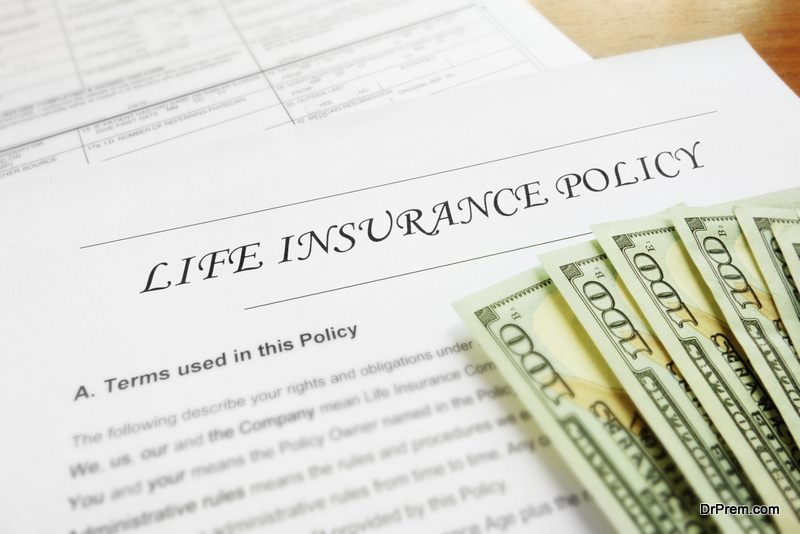If you’re like most people, you may think that life insurance is simply too complicated to worry about or that you don’t really need it. After all, you already have health insurance, car insurance, rental insurance and even travel insurance at times. Why would you want to pay for another policy?
In short, life insurance can provide tax-free money to your loved ones after you pass away. This lump of cash can be incredibly helpful as they plan your funeral and burial and will also make sure your children and beneficiaries are taken care of. Depending on the type of policy you choose, you might enjoy some benefits, too, including using some of the cash before you die.
Here are a few things you should know about life insurance before investing in it.
Death Benefits and Premiums
 All insurance policies have death benefits and premiums. The death benefits include what your beneficiaries will receive when you pass on. Your insurance company can help you decide how your loved ones will receive this payout. Traditionally, they would receive a lump-sum payment, however, you may choose an installment or annuity plan. Alternatively, you may opt for an accelerated death benefit, allowing you to draw against the face value of the policy in the case of a terminal illness.
All insurance policies have death benefits and premiums. The death benefits include what your beneficiaries will receive when you pass on. Your insurance company can help you decide how your loved ones will receive this payout. Traditionally, they would receive a lump-sum payment, however, you may choose an installment or annuity plan. Alternatively, you may opt for an accelerated death benefit, allowing you to draw against the face value of the policy in the case of a terminal illness.
Your premium is the second component of your life insurance policy and is the amount you pay for coverage. The premium price depends on your health, lifestyle, age and a number of other factors. If there’s a high risk of the company shelling out benefits soon, your premium will be more expensive and vice versa.
Term Life Insurance
Term insurance doesn’t have a cash value and, therefore, isn’t technically an investment. Rather, you pay a monthly premium and your beneficiaries receive the set amount of money if you die during the term. If you outlive the term, you may renew the policy. However, doing so may be expensive and your monthly premium will likely increase due to your older age and new health conditions. Therefore, it’s best to choose a suitable term length from the beginning.
You might also choose to terminate your policy instead of renewing it. In most cases, this will result in you losing the money you paid in premiums. Neither you nor your beneficiaries will receive a return or payout — unless you chose return of premium term life insurance. With this policy, the insurer will return your money if you outlive your term. Of course, this option is a bit pricier, but the peace of mind may be worth the higher cost.
Permanent Life Insurance
 Permanent life insurance, on the other hand, lasts as long as you pay for it. There are no 10, 15 or 30-year term agreements, so you can’t outlive your policy. Moreover, permanent life insurance does have cash value, making it more of an investment than term insurance. When you pay your monthly premium, a part of it goes into an investment account. There, your money grows, allowing you to buy more coverage, support major health expenses and accumulate a larger pay-out.
Permanent life insurance, on the other hand, lasts as long as you pay for it. There are no 10, 15 or 30-year term agreements, so you can’t outlive your policy. Moreover, permanent life insurance does have cash value, making it more of an investment than term insurance. When you pay your monthly premium, a part of it goes into an investment account. There, your money grows, allowing you to buy more coverage, support major health expenses and accumulate a larger pay-out.
Permanent policies also offer tax benefits, customizable coverage and cash withdrawals while you’re still alive. In most cases, the insurer won’t penalize you for early withdrawal and payouts won’t negatively impact your Social Security benefits. Of course, this type of insurance comes at a higher price compared to term insurance. However, the investment and withdrawal benefits may make the cost worth it in the long run.
Who Should Get Life Insurance?
There are four main types of people that should consider getting some type of life insurance — whether it be term or permanent. The first is people who struggled through life and will leave little behind. In this case, they might want to consider purchasing a policy to cover end of life expenses. The second group of people who should get life insurance is parents, legal guardians or others with dependents. This way, their loved ones will have some money after they pass.
Additionally, those with a family history of medical conditions and disease should consider getting long-term life insurance coverage. Then, if they develop a disqualifying illness in the future, they’ll still have insurance. The last group of people who should purchase a policy is those with wealth and large estates. In this case, they’ll want to choose a permanent policy so they might transfer their wealth to their heirs without being taxed.
Is It Worth the Investment?
 Compared to term life insurance, a permanent policy offers more benefits, but also comes at a higher monthly premium. Is investing in such a policy worth it? Well, it depends on your current financial situation and how long you want coverage. If you can’t afford permanent coverage but still need life insurance, a term policy may be the best choice. However, if you need long-term coverage and want to grow your money, a permanent policy might be worth the investment.
Compared to term life insurance, a permanent policy offers more benefits, but also comes at a higher monthly premium. Is investing in such a policy worth it? Well, it depends on your current financial situation and how long you want coverage. If you can’t afford permanent coverage but still need life insurance, a term policy may be the best choice. However, if you need long-term coverage and want to grow your money, a permanent policy might be worth the investment.
Before making a decision, consider each type of insurance and the pros and cons of both. Remember, the older you are, the higher the premium. If you can get by without life insurance, doing so may actually save money and allow you to invest elsewhere like a Roth 401(k) or Roth IRA. Additionally, talk to an advisor before signing the paperwork to make sure the final decision is best for you, your finances and your loved ones.
Article Submitted By Community Writer




